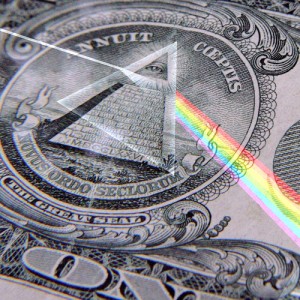So, I’m not sure if it’s all ATMs, but I know Interac (our debit) is down. This is also apparently affecting 911 (emergency) calls.
Canada has three providers of phone and internet, everyone else is either niche (satellite) or actually uses their networks. They are Bell, Telus and Rogers.
Rogers is down, with no ETA to being back up. I found out when I tried to call Canada’s tax people (the Canada Revenue Agency) and got “no network”.
The short term point here is to always keep some cash. I’ve got $25 in my pocket, which is less than it should be but at least I can buy some food and so on.
Cashless societies are bad. Not just because it’s easy for the infrastructure to go down for technical reasons or due to some disaster or war or terrorism, but because they are inherently totalitarian. The government or corporations can freeze people out of the economy any time they want. PayPal, Visa and Mastercard have done this repeatedly (many years ago it was Wikileaks, since it’s been people with the wrong political views.)
I didn’t much like the Trucker protests in Ottawa, Canada, but they should have been dealt with by the police, not by freezing people’s bank accounts. That’s tyranny. It was done, I’m fairly sure, because the Ottawa police were sympathetic to the truckers and politicians didn’t think they’d obey orders.
Likewise, many folks who use things like bitcoin don’t understand blockchain technology: it’s inherently totalitarian and its traceable. It’s a LOT harder to trace cash. If you want anonymity, cash is still king. Any society which removes cash is doing so for two reasons:
- So they can track much more, micromanage what people spend and shut people and organizations they don’t approve out of the economy easily; and,
- So that middlemen (corps, governments if they want to) can take a cut off everything.
I believe we should pay our taxes, but it’s not an absolute value. Black and especially gray markets exist for a reason, and it’s not always a bad thing. In particular, in many countries, including the US and Canada, you can’t always get a bank account. The cash economy allows those who can’t to survive; it allows those shut out to survive, and gray and black markets put a check on government power to say “absolutely not” to people things really want or need.
That’s a good thing, not a bad thing.
The more we love to e-cash only, the more our societies, intrinsically, are vulnerable to shocks, to authoritarianism and to rentierism.
Cash is worth keeping and I would go so far as to make it illegal for most businesses to not accept cash. Cash is, in a certain sense, freedom. In another deeper sense money based societies are anti-freedom, but that’s another argument and for another time. If we use money, we need cash that can’t go down and which isn’t inherently authoritarian.

